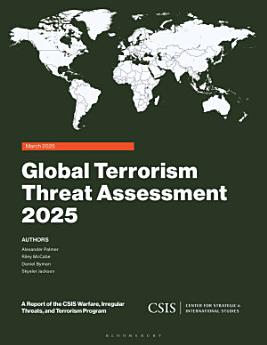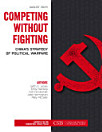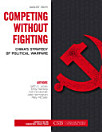Global Terrorism Threat Assessment 2025
Alexander Palmer · Riley McCabe · Daniel Byman · Skyeler Jackson
Jul 2025 · Bloomsbury Publishing USA
Ebook
72
Pages
reportRatings and reviews aren’t verified Learn More
About this ebook
Terrorism remains a threat to U.S. citizens, assets, and interests despite the national security community's decreasing focus on counterterrorism.
In 2025, domestic terrorism represents a greater threat to the United States than do international terrorist organizations. Most domestic terrorist attacks in the United States are carried out by lone actors or small groups who believe in a wide range of ideologies, such as white supremacy, partisan extremism, and Salafi-jihadism. In the Middle East, the Al Qaeda core, Al Qaeda in the Arabian Peninsula, and the Islamic State remain committed to conducting attacks against the U.S. homeland as well as U.S. interests, although all three are weaker than they were during their heydays. Israel has degraded Hezbollah's and Hamas's capabilities, while the Houthis have become a more active regional threat. Africa remains the most active theater for Salafi-jihadist organizations, but the continent's groups are mostly tertiary priorities for the United States, with the exception of East Africa's Al Shabaab.
This report consists of three regional assessments of the threat from terrorist groups and movements in the United States, the Middle East (including Afghanistan), and Africa. The purpose of this assessment is to help U.S. national security policymakers, intelligence and law enforcement professionals, and military decision-makers prioritize among different terrorist threats.
In 2025, domestic terrorism represents a greater threat to the United States than do international terrorist organizations. Most domestic terrorist attacks in the United States are carried out by lone actors or small groups who believe in a wide range of ideologies, such as white supremacy, partisan extremism, and Salafi-jihadism. In the Middle East, the Al Qaeda core, Al Qaeda in the Arabian Peninsula, and the Islamic State remain committed to conducting attacks against the U.S. homeland as well as U.S. interests, although all three are weaker than they were during their heydays. Israel has degraded Hezbollah's and Hamas's capabilities, while the Houthis have become a more active regional threat. Africa remains the most active theater for Salafi-jihadist organizations, but the continent's groups are mostly tertiary priorities for the United States, with the exception of East Africa's Al Shabaab.
This report consists of three regional assessments of the threat from terrorist groups and movements in the United States, the Middle East (including Afghanistan), and Africa. The purpose of this assessment is to help U.S. national security policymakers, intelligence and law enforcement professionals, and military decision-makers prioritize among different terrorist threats.
About the author
Alexander Palmer is a fellow in the Warfare, Irregular Threats, and Terrorism Program at the Center for Strategic and International Studies (CSIS). Prior to joining CSIS, he worked in Afghanistan, where he provided security analysis to humanitarian and UN staff before and after the withdrawal of international military forces in August 2021. He holds a master in public policy from the Harvard Kennedy School of Government.
Riley McCabe is an associate fellow in the Warfare, Irregular Threats, and Terrorism Program at CSIS. He has previously supported the research of the intelligence fellow, the fellow for future war, gaming, and strategy, and the Risk and Foresight Group at CSIS. Riley holds a BA from Occidental College in diplomacy and world affairs.
Daniel Byman is the director of the Warfare, Irregular Threats, and Terrorism Program at CSIS. He is also a professor at Georgetown University's School of Foreign Service and director of the Security Studies Program. In addition to serving as the vice dean for the School of Foreign Service at Georgetown, he was previously a senior fellow at the Center for Middle East Policy at the Brookings Institution and a professional staff member with both the National Commission on Terrorist Attacks on the United States (9-11 Commission) and the Joint 9/11 Inquiry Staff of the House and Senate Intelligence Committees. He formerly served as research director of the Center for Middle East Public Policy at the RAND Corporation and as a Middle East analyst for the U.S. intelligence community. Dr. Byman is a graduate of Amherst College and received his PhD in political science from the Massachusetts Institute of Technology.
Skyeler Jackson was an intern in the Warfare, Irregular Threats, and Terrorism Program at CSIS. Skyeler holds a BA from the University of North Carolina at Chapel Hill in global studies and political science and is pursuing a master's degree at the Security Studies Program at Georgetown University's School of Foreign Service.
Riley McCabe is an associate fellow in the Warfare, Irregular Threats, and Terrorism Program at CSIS. He has previously supported the research of the intelligence fellow, the fellow for future war, gaming, and strategy, and the Risk and Foresight Group at CSIS. Riley holds a BA from Occidental College in diplomacy and world affairs.
Daniel Byman is the director of the Warfare, Irregular Threats, and Terrorism Program at CSIS. He is also a professor at Georgetown University's School of Foreign Service and director of the Security Studies Program. In addition to serving as the vice dean for the School of Foreign Service at Georgetown, he was previously a senior fellow at the Center for Middle East Policy at the Brookings Institution and a professional staff member with both the National Commission on Terrorist Attacks on the United States (9-11 Commission) and the Joint 9/11 Inquiry Staff of the House and Senate Intelligence Committees. He formerly served as research director of the Center for Middle East Public Policy at the RAND Corporation and as a Middle East analyst for the U.S. intelligence community. Dr. Byman is a graduate of Amherst College and received his PhD in political science from the Massachusetts Institute of Technology.
Skyeler Jackson was an intern in the Warfare, Irregular Threats, and Terrorism Program at CSIS. Skyeler holds a BA from the University of North Carolina at Chapel Hill in global studies and political science and is pursuing a master's degree at the Security Studies Program at Georgetown University's School of Foreign Service.
Rate this ebook
Tell us what you think.
Reading information
Smartphones and tablets
Install the Google Play Books app for Android and iPad/iPhone. It syncs automatically with your account and allows you to read online or offline wherever you are.
Laptops and computers
You can listen to audiobooks purchased on Google Play using your computer's web browser.
eReaders and other devices
To read on e-ink devices like Kobo eReaders, you'll need to download a file and transfer it to your device. Follow the detailed Help Center instructions to transfer the files to supported eReaders.





